| Autumn 2011 |

|

|

|
 A Women-Led Humanitarian and Human Rights Initiative Autumn 2011
We hope you and your family are making wonderful summer memories! This update is brought to you courtesy of our Sisterhood for Peace initiative! This project supports a growing network of diverse women who are collaborating across the traditional barriers of race, religion, ethnicity and geography that have pitted Sudanese against one another for generations. The Sisterhood launched in 2007 with 8 courageous Diaspora women. Because of your generosity , the network has grown to over 400 dynamic peacemakers in northern Sudan, South Sudan and the Diaspora. July 9th marked the inaugural Independence Day for the newly birthed Republic of South Sudan. Six months ago, sisters from all regions expressed support of the referendum and the Southerners‟ right to self-determination. However, the 99% vote in favor of separation evoked different sentiments among women from different regions. We invite you to compare the reflections of Sarah from South Sudan, Niemat from Darfur and Nada from northern Sudan. “It was the feeling of FREEDOM”—Sarah Cleto Rial, South Sudan In 1999, Sarah was resettled in the US as a conflict refugee from South Sudan. In Dec 2010, she was honored with the US State Department 2010 Eleanor Roosevelt Human Rights Award . Your giving enables Sarah to support other courageous women human rights activists.
I am so grateful to God for the opportunity that I had through My Sister's Keeper to come to South Sudan with my three sons, in time to attend the celebrations. The moment that I will always cherish was the lowering of the flag of Sudan and the raising of the flag of South Sudan as the new national anthem was being sung. It is so hard to explain, but at that moment I felt really different. It was the feeling of FREEDOM—freedom from slavery, dependency on the government in Khartoum, from being a second class citizen in my own country. It was the feeling of joy.
Everyone around me was crying, men and women. I am a crier and always cry at times of joy and sadness. Over the years, I cried so many times because of the mistreatment that South Sudanese faced. So many suffered and died during the war. I cried when I heard sad songs about the loss of the lives of innocent people. I cried when a young boy was shot outside my hostel room just because he was looking for leftovers from the students. I cried when so many young men, including my best friend's fiancé, disappeared after the Juba Incident in 1992; their whereabouts are not known to this moment. I cried when a student from the National Islamic Front (currently National Congress Party) stabbed to death a student from the Democratic Front over mere student politics. I cried when our colleague, Achol, was shot in the leg during a student protest. I cried for all my colleagues who suffered torture at the hands of the secret services. I cried for those who died of illness that could have been treated were it
On July 9th, I decided to hold back my tears and celebrate our freedom free of tears. Like so many people, I long for a life of comfort. But this is not the time to think about myself. Now all of us must wipe our tears, put aside
"Despite the ongoing suffering in Darfur, I am so happy and optimistic"—Niemat Ahmadi, Darfur Niemat Ahmadi is a refugee from North Darfur, where she assisted victims of gender-based violence. After she became a target of two assassination attempts, Niemat fled Sudan. We met this courageous "Sister for Peace" in 2007, shortly after she was resettled in the United States. She is now the Diaspora Outreach and Advocacy Coordinator of Genocide Intervention/Save Darfur Coalition and Founder of the Darfur Women’s Action Group. After the results of the referendum were announced, Niemat posted this open letter on our highly diverse and very active Women-Voice-for-Peace-in-Sudan yahoo group. With your support we can continue facilitating the cross-cultural dialogue to promote peace in throughout both Sudans.
It is with a lot of pride that I congratulate the women, men and the children of South Sudan. They paid an extremely highly price and made invaluable sacrifices to make the promise of freedom for South Sudanese people possible. Today I am very relieved. For years I have been carrying the pain of the injustice that was experienced by our Southern sisters and brothers in our nation‟s capital of Khartoum that is supposed to be for everybody. Today I salute those brave women who made it possible to have their own ballot from now on! To me the vote for the independence of the South doesn't mean separation. For so long, people have been denied their rights. Finally their struggle has yielded its fruit. Now they are allowed to exercise their very basic rights, to be able to shape their own present and their future, free from oppression. The independence of the South is not only a gain for the Southern Sudanese but it's a big gain for all of us, the dignified people of Sudan who have said no to oppression. Today they have shown us that freedom is possible for the African marginalized people of Sudan. It’s also a great lesson to any Sudanese who has a dream. It shows that it might be difficult but not impossible, if you are willing to sacrifice. It requires a lot of discipline for the people of Sudan who always see that sacrifices are difficult. Sometimes, it seems impossible to bring their dreams of change into reality. Yes, it takes a lot of tolerance, honesty and compromises. My sisters from the north have to think critically and talk honestly to themselves about what it will take for the Sudanese people to build a nation that can accommodate everyone regardless of their differences. I apologize to my sisters from the South for bringing back the bad memories but honestly I meant to recognize that had it not been for your sacrifices, this vote would not be possible!!! It's for this reason that I remind all of us, particularly my sisters from the North, that change will not come by writing poems, but by determination, endurance, honesty, tolerance and hard work. If we believe in it, we will no longer be ruled by dictators any more.
Despite the ongoing suffering in Darfur, I am so happy and optimistic with the result of the South Sudan referendum. It means a lot to me. At least some Sudanese people are marching confidently toward their freedom. And as long as the people of Darfur keep their feet to the fire, for sure one day they will walk
Please extend my congratulations to all. Long live women, men and the children of the South
Independence Day Blues—Nada Mustafa Ali, Dongula, Northern Sudan Nada is a visiting research scholar at the Department of African and African American Studies at Fordham University. She is the author of US Institute for Peace's forthcoming special report on Gender and State-building in South Sudan; and an upcoming chapter on women and HIV/AIDS in South Sudan for the Institute for Justice and Reconciliation. South Sudan's independence meant very different things to diverse women and men of Sudan and of the Republic of South Sudan. Across South Sudan, and among the Southern Sudanese Diaspora, the dominant spirit was one of jubilation. What many Northern Sudanese, experienced, however, was the complete opposite. For many, anger and the blues ruled the day. This was true even for (and especially among) those who were active in the struggle of Southern Sudanese and others in the marginalized areas of Sudan (where the discrimination, the killing and the displacement continues) for equality and justice. As someone who has had the utmost privilege and pleasure to befriend and listen to the stories and witness the struggles of diverse South Sudanese women and men for almost two decades, I thought I was immune to independence blues. In the run-up to and after the referendum, I kept reminding myself (and others) that although it would have been 'nice' (and sadly, possible) to build a New Sudan that is united—where all enjoy their full human rights and benefit equally from socio-economic and political resources, regardless of gender, race, social class, or regional location. However, we all knew that in practice, such a Sudan was but a dream given the atrocious history and the complex and oppressive current political context.
I kept recalling stories I heard from Southern For some, the very act of voting in the referendum was a step toward redemption from a painful past. I will never forget Minister Awut Deng's words in Juba in February 2011,
These and many other stories made me hope that the political establishment that ruled Sudan since independence would at least follow custom and, when bidding farewell to the South, plea for ala’fu wala’fia (forgive us, and go in good health).
In the Republic of South Sudan, the work has just begun to achieve real independence for women: through meaningful participation and access to education, employment, and healthcare, especially maternal care; through addressing patriarchal laws and practices that discriminate against women; and through building a strong women’s movement that can campaign on behalf of the women across South Sudan and beyond.
With Love, ala'fu wala'fia Sisterhood for Peace: Building a Strong Women’s Movement Remains Critical
Indeed, peace remains elusive as conflicts abound within and between northern Sudan and South Sudan. The crisis in Darfur persists as Government of Sudan (GoS) armies regularly launch military offensives against civilians, and then impede humanitarian access to the victims. In March, GoS forces took over Abyei, an area along the North/South border claimed by both countries. Since then, some 90,000 have been displaced. You may recall that in December 2010, we conducted a Sisterhood for Peace conference in the Nuba Mountains region of Southern Kordofan State. (Please see our Spring 2011 newsletter.) Women conveyed their concern about the increasing number of GoS troops in the area. In May, these troops commenced a campaign of ethnic cleansing forcing the displacement of 70,000 people—some of whom were women who attended the conference. In June, the Satellite Sentinel Project cofounded by actor-activist, George Clooney, http://clients.trellon.org/sentinel/ posted images of what they identified as mass graves. Furthermore, while the mood in South Sudan is generally jubilant, escalating conflicts inside the new republic remain ominous. Fighting between South Sudanese insurgent militia groups and the South Sudanese army are extremely worrisome, as are the second-tier skirmishes between rival ethnic groups over such resources as land, water and cattle. The United Nations estimates that more than 1500 people in South Sudan have perished since January 2011. Sporadic attacks in South Sudan by elements of neighboring Uganda's Lord's Resistance Army are regular occurrences. Indeed, Sisters for Peace face great challenges. However, lives are at stake and resignation is not an option. Fueled by your encouragement , Sisters remain determined to, as Niemat vows, "continue our struggle to create the Sudan of our ambition". July 9, 2011: A Victory for Southerners and A Validation of You! The week before South Sudan's Independence Day, Pres. Obama forwarded a letter to Sudan activists around the country.
Pres. Obama is right. July 9th was a victory for Southerners and a validation for you! As a faithful donor , this is as much your story as it is ours. What a remarkable story it is! Exactly 10 years earlier, on July 9, 2001, our Co-Founder and Chair, Rev. Liz Walker, and I were returning from our 1st trip to southern Sudan—in the midst of the North/South civil war. We went to bear witness to the "underground railroad" established to free women and children brutally enslaved during the conflict. Outraged by their stories, six intrepid women launched My Sister's Keeper in 2002 as a women-led humanitarian and human rights initiative. Along the way, you also took up "the cause of security, dignity and justice for all the Sudanese people." Who would have thunk it? Ten years later, after more than 20 trips throughout North and South Sudan; countless protest rallies, speeches, emails, letters and phone calls; numerous meetings on Capitol Hill, in the State Department and at the United Nations; a meeting in the White House Roosevelt Room with Pres. Bush in 2006 and another meeting in the Roosevelt Room with Pres. Obama in 2009; AND after multiple trips to Akon, (a village where we met returning slaves during the 1st trip in July 2001) to construct the permanent campus for the 500 girls at the Kunyuk School and 120 students at the Women‟s Peace School—WE ARE HERE! Wow! God has been amazing and you have been amazingly generous! On July 9th, while Sarah witnessed the new flag being raised in Juba, I witnessed the flag raising in Washington, DC at the new Embassy of the Republic of South Sudan. Unlike Sarah, as I watched the new flag ascend, I could not hold back my tears of utter gratitude. At the celebration that evening, my Sudanese colleagues expressed their appreciation for the work of My Sister's Keeper and asked me to speak. I reassured the audience that with your support , My Sister's Keeper will continue to work alongside them to build their new country and advocate for peace in both Sudans. As Sarah suggests and Niemat and Nada affirm, together we will "build a better future for all of our sons and daughters and for generations to come".
For more information, please contact us at 215 Forest Hills Street, Boston, MA 02130-3302; |


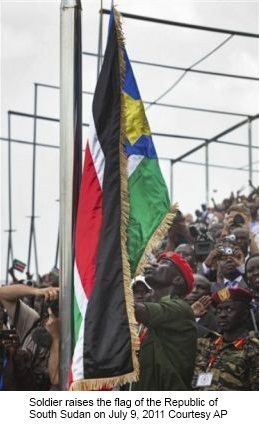 Oh my God, I was there in the crowd on July 9th, the Independence Day of South Sudan at Dr. John Garang's Mausoleum in Juba. Many decided to watch the celebration on TV because they were sure it would be so crowded and they would miss a lot. But for me, the whole joy was to be there even if I did not see anything. One day I will tell my grandchildren that I myself, and their parents, my three sons, were at the celebration. We all dressed up nicely in the morning, me in my African attire and they in their new suits and ties. The weather was hot but it did not matter. It was the birth of our nation!
Oh my God, I was there in the crowd on July 9th, the Independence Day of South Sudan at Dr. John Garang's Mausoleum in Juba. Many decided to watch the celebration on TV because they were sure it would be so crowded and they would miss a lot. But for me, the whole joy was to be there even if I did not see anything. One day I will tell my grandchildren that I myself, and their parents, my three sons, were at the celebration. We all dressed up nicely in the morning, me in my African attire and they in their new suits and ties. The weather was hot but it did not matter. It was the birth of our nation!
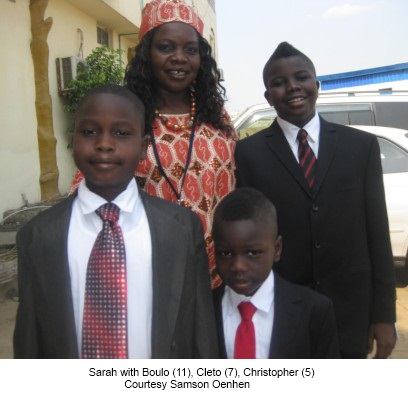 not for the war. I cried when my two cousins and I were arrested because of our dress and mistreated by those who claimed to be security personnel.
not for the war. I cried when my two cousins and I were arrested because of our dress and mistreated by those who claimed to be security personnel.
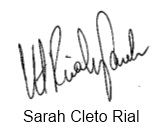 our differences and work together to build a better future for all of our sons and daughters and for generations to come.
our differences and work together to build a better future for all of our sons and daughters and for generations to come.
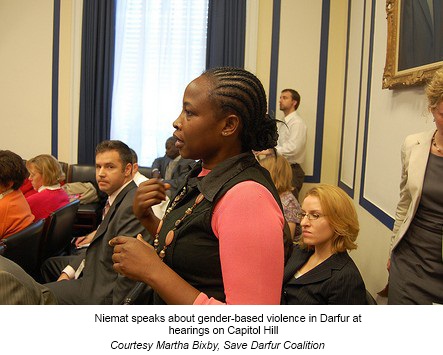 Dear Sisters,
Dear Sisters,
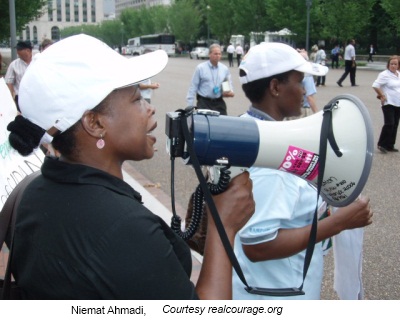 the walk and talk the talk either in the context of an old Sudan with equal rights for all or by creating a new Sudan of their own context. I hope and will pray that Abyei will follow and we will continue our struggle to create the Sudan of our ambition.
the walk and talk the talk either in the context of an old Sudan with equal rights for all or by creating a new Sudan of their own context. I hope and will pray that Abyei will follow and we will continue our struggle to create the Sudan of our ambition.
 and the dignified Sudanese people everywhere.
and the dignified Sudanese people everywhere.
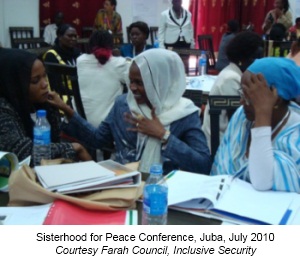 Sudanese sisters. I remembered Theresa, a fellow activist I met at the workshop My Sister's Keeper and partners organized in Juba last July. Fittingly, the program included a viewing of Pray the Devil Back to Hell, which documents women‟s efforts to end the Liberian war. After the movie, many, especially Darfuri sisters, were in tears. I noticed that Theresa had the deepest look of sadness in her eyes. "The movie reminded me of what had happened to us." She told me there were mass graves, from the war, in Juba and several other towns in the South. I have wondered ever since, how we could ever expect people who were literally sitting on mass graves, to vote for a united Sudan, especially in the absence of any initiatives for transitional justice or reconciliation in the five precious years that followed the signing of the Comprehensive Peace Agreement in 2005?
Sudanese sisters. I remembered Theresa, a fellow activist I met at the workshop My Sister's Keeper and partners organized in Juba last July. Fittingly, the program included a viewing of Pray the Devil Back to Hell, which documents women‟s efforts to end the Liberian war. After the movie, many, especially Darfuri sisters, were in tears. I noticed that Theresa had the deepest look of sadness in her eyes. "The movie reminded me of what had happened to us." She told me there were mass graves, from the war, in Juba and several other towns in the South. I have wondered ever since, how we could ever expect people who were literally sitting on mass graves, to vote for a united Sudan, especially in the absence of any initiatives for transitional justice or reconciliation in the five precious years that followed the signing of the Comprehensive Peace Agreement in 2005?
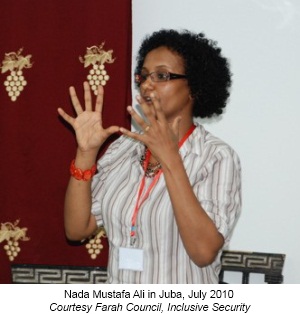 And so, my dear sisters (and brothers) from the new, proud and dignified Republic of South Sudan: in struggle, in memory of the good and difficult times, of the stories we shared, the jokes we exchanged, and the kisra, kushari and mulah (food) we shared, I do not say goodbye, but congratulations and we meet again, and as my dear friend Sarah Rial wrote back to me on 9 July, this is a separation at the political level, but not a separation of the people. Indeed, the two countries are interdependent; and activists should continue their collective struggles. Right now we should stand in solidarity with our sisters in South Kordofan, Darfur and Abyei; and to ensure justice and respect for human rights prevail in the two countries.
And so, my dear sisters (and brothers) from the new, proud and dignified Republic of South Sudan: in struggle, in memory of the good and difficult times, of the stories we shared, the jokes we exchanged, and the kisra, kushari and mulah (food) we shared, I do not say goodbye, but congratulations and we meet again, and as my dear friend Sarah Rial wrote back to me on 9 July, this is a separation at the political level, but not a separation of the people. Indeed, the two countries are interdependent; and activists should continue their collective struggles. Right now we should stand in solidarity with our sisters in South Kordofan, Darfur and Abyei; and to ensure justice and respect for human rights prevail in the two countries.
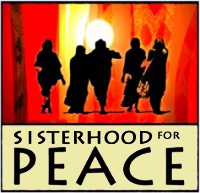 While Sarah, Niemat and Nada express different sentiments about the separation, all of them remain resolute on this one thing— the need for Sisterhood for Peace remains critical. We must continue building a strong collaborative women‟s peace movement. We're counting on your
While Sarah, Niemat and Nada express different sentiments about the separation, all of them remain resolute on this one thing— the need for Sisterhood for Peace remains critical. We must continue building a strong collaborative women‟s peace movement. We're counting on your